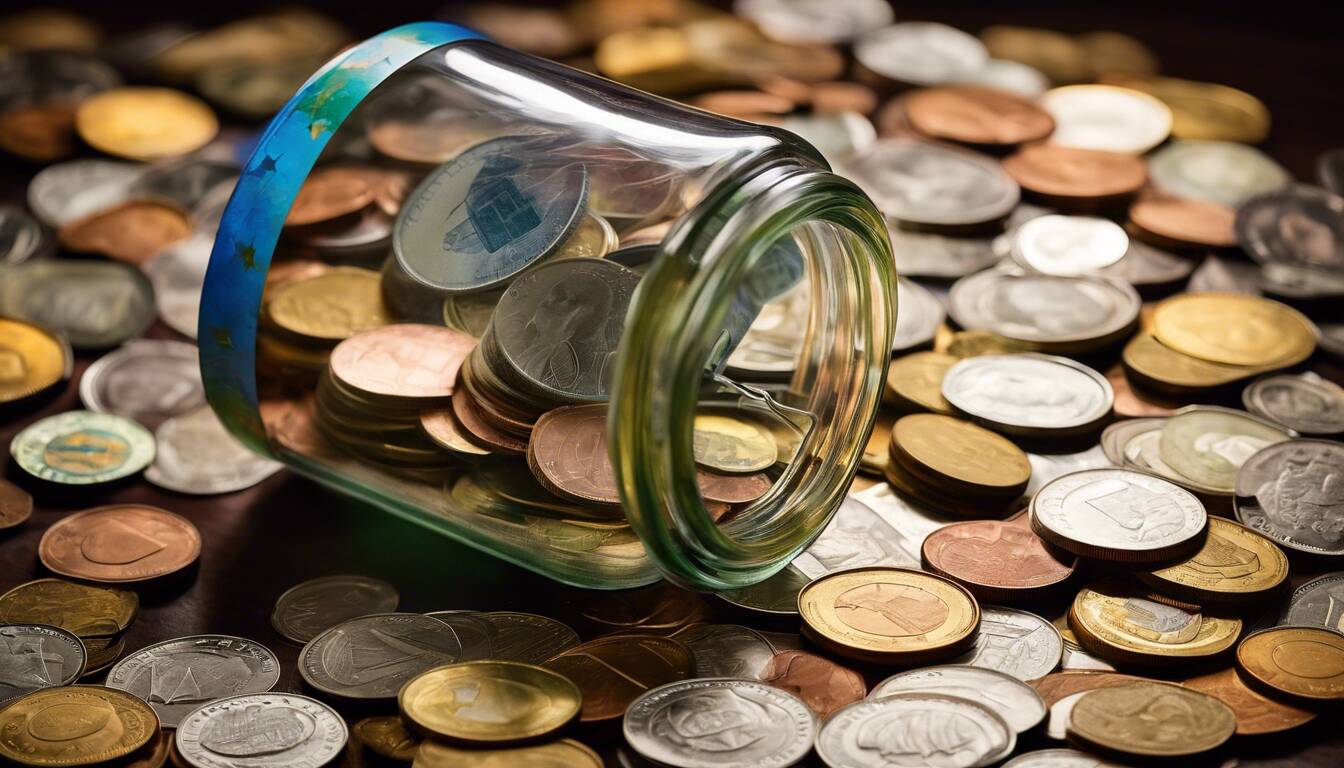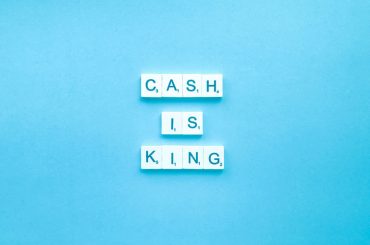Leftover travel money, be it cash, coins, or digital currency, is not to be wasted. With the right strategies, these leftovers can significantly improve your savings and budgeting plans. Think beyond the obvious – use big notes for large purchases perhaps, but don’t disregard the small change or remaining balance on your prepaid travel card. Even a handful of foreign coins could become part of an intriguing art project or keepsake, adding sentimental value as well as saving you potential spending. Now let’s talk more about these types of travel currency…
One option for dealing with leftover travel money is to exchange it at a reputable currency exchange or bank. Another alternative is to save it for future trips, as currencies may appreciate or depreciate over time. Additionally, consider donating the remaining funds to charity if you have small amounts that may be difficult to exchange. Always check for any restrictions on currency exchange in the country you visited and plan accordingly.
Different Forms of Leftover Travel Money
When you return from a trip, it’s common to find yourself with leftover foreign currency in various forms, such as banknotes, coins, prepaid travel cards with remaining balances, or foreign currency stored in digital wallets or payment apps. Each of these forms presents unique opportunities for saving or using the leftover money wisely.
Let’s start with foreign banknotes and coins. Carrying both notes and coins is common when travelling, but when you return home, this foreign currency might seem more like a souvenir than something useful. However, it’s valuable nonetheless. You can consider holding onto smaller denominations as keepsakes or for future travels, but larger denominations should be exchanged.
Practical Uses for Cash in Your Wallet
When travelling, it’s common to have leftover foreign currency that you can’t use back home. So, what can you do with it? Here are a few smart ideas on how to make the most of that extra cash.
Paying for Small Local Purchases
One practical way to use your leftover foreign currency is to spend it on small local purchases during the last few days of your trip. This includes buying small souvenirs or gifts, grabbing some local snacks, or paying for local transportation services. By doing this, you avoid carrying excess foreign currency back home and also get to enjoy some additional mementos from your travels.
“Imagine finding an intricately designed keychain at a local market or indulging in some traditional street food using your remaining foreign coins. These small purchases not only help you utilise your remaining currency but also serve as meaningful reminders of your journey.”
Tipping
Tipping is customary in many countries, especially for service staff, guides, or drivers who have assisted you during your travels. If you have leftover cash, using it to tip these individuals is a thoughtful way to express gratitude for their services. Moreover, tipping serves as a form of cultural exchange and appreciation. It acknowledges the effort and hospitality of locals, fostering goodwill and leaving a positive impact beyond monetary transactions. It’s essentially an opportunity to express thanks for the experiences and memories created during your journey.
These practical uses not only help in maximising the value of your remaining travel money but also contribute to supporting local businesses and individuals who enhance your travel experience.
In making the most of leftover travel money, these strategies not only optimise your resources but also enrich the cultural exchange experience. Now, let’s delve into efficient methods for managing unused bank currency.
Efficiently Spending Unused Bank Currency
When it comes to leftover currency stored in your bank account after a trip, it’s essential to strategize how you can efficiently use it. One smart way is by leveraging the foreign exchange rates and avoiding unnecessary transaction fees. Here are some clever ways to make the most of your unused bank currency.
One effective approach is to use the remaining funds to pay off any international transactions made with your credit or debit card during the trip. By doing so, you can minimise or even eliminate foreign transaction fees which might incur if you use your home currency for settling these expenses. This prudent move not only helps save on additional costs but also balances out financial records seamlessly.
Another savvy method is to convert the leftover bank currency back to your home currency, provided that the exchange rates are favourable. Keeping an eye on the exchange rates and choosing the optimal timing to convert the funds can result in increased savings. It’s advisable to compare multiple currency exchange providers and opt for reputable ones with competitive rates and minimal commission charges.
For instance, if one U.S. dollar equals 0.85 euros and you have $100 leftover from your trip, exchanging it at the right time could yield you 85 euros or more, depending on the prevailing rate.
It’s also prudent to consider reserving a portion of the unused bank currency for future travel endeavours. You can create a dedicated travel fund where you accumulate foreign currencies that can be utilised for upcoming trips, potentially saving on future exchange fees and providing a head start for the next adventure.
Some may argue that keeping foreign currency in anticipation of future travels might pose risks due to potential fluctuations in exchange rates, but strategically monitoring the economic trends and making informed decisions can mitigate such concerns.
By using these efficient methods to spend your leftover bank currency, you can effectively optimise its value and leverage it for greater financial benefits.
Utilising leftover travel money wisely sets the stage for a seamless transition between journeys while maximising financial resources. Moving forward, let’s explore innovative ways to turn this surplus cash into valuable assets for your home budget.
Turning Leftover Cash into Home Budget Boosters
So, you’ve returned from your trip and found yourself with a handful of foreign coins clinking around in your pockets. What should you do with them? While it may seem like a small amount of money, it can actually add up to some extra savings or thoughtful budgeting strategies.
Exchange Your Coins: First off, check if nearby banks or currency exchange offices accept coins. While some only deal with paper money, others are happy to take coins off your hands. Keep in mind that some fees may apply, so it’s worth shopping around for the best deal. If exchanging isn’t an option, consider repurposing foreign coins as part of your budgeting plan. For instance, designate these coins for specific expenses, like treating yourself to a coffee or a snack every time you accumulate a certain amount.
Creating a Coin Jar
One way to put those leftover coins to good use is by creating a “coin jar” at home. Every time you return from an international trip, empty your remaining foreign currency into the jar. Over time, this can amass into a helpful fund for specific purposes such as dining out, entertainment, or even for future travel.
This method not only serves as a tangible reminder of past travels but also encourages mindful spending and goal-setting. Watching the jar fill up can become an exciting way to save for treats and indulgences, unwinding any residual stress about the delayed “return on investment” from your travel experience.
Gift Their Value: Alternatively, consider giving foreign coins as gifts to friends or family members who are interested in world currencies or collecting unique items. It could be an unexpected delight for them and eases the burden of carrying them around in your wallet.
Numismatic Interest
For those intrigued by different cultures and history, foreign coins can serve as fascinating collectibles. If you or someone in your household has a keen interest in numismatics—the study or collection of currency—these coins can become cherished mementos from worldwide adventures.
Encouraging children to explore different currencies fosters geographical curiosity while providing invaluable educational opportunities about global finance and culture.
Even if travelling isn’t always possible, organising and keeping different currencies in envelopes for future use delivers context and excitement surrounding potential future trips and grows their sense of appreciation for diverse societies around the world.
In conclusion, these inventive strategies ensure that leftover foreign coins are not just forgotten tokens of past voyages but instead become useful components of your home budgeting plans and meaningful aspects of personal collections and education.
Saving Your Leftover Travel Money
When you return from a trip, you might find yourself with excess foreign currency that’s too little to exchange but too much to ignore. It’s easy to brush it aside and think, “I’ll use it next time I travel,” but then it collects dust and gets forgotten about. Instead, consider setting up a dedicated savings account specifically for this leftover travel money.
Having a separate savings account allows you to keep this extra cash organised and ready for your next adventure. Plus, it acts as a visible reminder of all the great trips you’ve taken. Associating these funds with your future travels preserves the excitement and anticipation that comes with planning a new journey, making this a very fun and motivating way to grow your travel fund. This strategy also helps protect these funds from being spent inadvertently on everyday expenses. When mixed with regular spending money, leftover travel cash can easily disappear into daily purchases without you even realising it. By having a dedicated account, you ensure that these funds are kept aside for the specific purpose of travel only.
Imagine logging into your bank account and seeing those funds slowly grow with each trip you take – even if it’s just leftover change from different countries adding up over time. It becomes like a treasure chest, ready for when you want to travel again!
Let’s say you jet off to Paris and come back home with 50 euros in cash. You deposit this into your leftover travel money savings account. Then, on another trip to Tokyo, you end up with 5000 yen. Again, this goes straight into the same account. Over time, these seemingly small amounts accumulate and can make a substantial contribution toward your next vacation without impacting your regular savings.
In essence, having a designated savings account for your leftover travel money not only safeguards these funds but also instils discipline and visualises your future travels – turning loose coins and notes into exciting prospects for new adventures.
Currency Exchange
After returning from a trip, you may find yourself with leftover foreign currency. While these coins and banknotes may seem like souvenirs, exchanging them can actually contribute to your savings and future travel plans.
Visiting a reliable currency exchange service or bank allows you to convert your remaining foreign currency back into your local currency or another currency you might need for future trips. By doing so, you can avoid the hidden fees associated with currency conversion and ensure that your leftover travel funds retain their value.
For instance, if you have Euros left over from a trip to Europe, exchanging them for your local currency means you won’t lose money due to fluctuating exchange rates. This proactive approach ensures that your travel savings stay intact and ready for future adventures.
Think of it as tending to a garden; by nurturing and preserving your leftover travel money through strategic decisions like currency exchange, you’re cultivating a flourishing ecosystem of savings that will continue to grow over time.
By strategically leveraging credit card cashbacks and making informed decisions about currency exchange, you can amplify the utility of your leftover travel money and integrate it seamlessly into your savings and budgeting initiatives.
As we consider thoughtful ways to manage leftover travel funds, let’s now delve into another impactful avenue—channeling unused travel resources into charitable contributions.
Charitable Contributions with Leftover Travel Money
Have you ever pondered how those few coins or bills from your trip could make a difference in the world, even after you’ve returned home? Donating your remaining foreign currency to charitable organisations or initiatives can turn your unused funds into positive change for communities around the globe. Just imagine the impact those coins could have when pooled together with other contributions to support critical causes.
UNICEF’s Change For Good Programme
Platforms like UNICEF’s Change For Good Programme provide an opportunity to put your foreign currency towards meaningful initiatives, such as efforts to provide clean water, healthcare, education, and emergency relief to children and families in need. By exchanging your leftover travel money for valuable contributions to those less fortunate, you’re transforming something often seen as disposable into a powerful force for good.
For instance, your leftover foreign currency could help fund nutrition programmes for malnourished children in developing countries. In this way, even small amounts can accumulate to create tangible impacts on crucial issues like child health and education.
Understanding the global impact of your contribution can be truly inspiring. It’s a way to extend the joy of travel by contributing positively to the lives of others long after your trip has ended.
The act of giving back through charitable donations offers a fulfilling and altruistic way to repurpose leftover travel money, enabling it to make a substantial and lasting difference beyond its original purpose.
Repurposing your leftover travel money into charitable contributions not only gives you an opportunity to make a positive impact but also allows you to continue spreading goodwill long after your journey ends. Consider donating your unspent foreign currency today and be part of making a meaningful change in the world.






